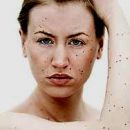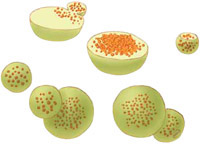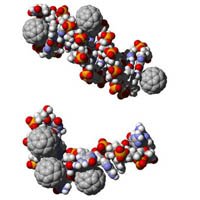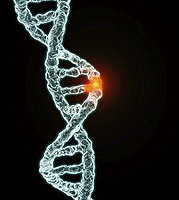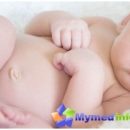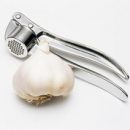What is ichthyosis? What are the forms of ichthyosis? How is the treatment of ichthyosis? Answers to these questions you will find in the article.
Content
make a heterogeneous (heterogeneous) group of diseases characterized
Excessive skin peeling. Term «ichthyosis» Comes from Greek «Ichthy», Meaning «fish». Most often meet hereditary
forms of ichthyosis, but the occurrence of this state is not excluded
in relation to other diseases.
This is the most common form of hereditary diseases
Enot (1: 3000 - 1: 4500 Population). The cause of the disease is unknown.
Distinguish between several clinical forms caused by various groups
mutant genes whose biochemical defect is finally not
decoded. Give great importance to the insufficiency of vitamin A,
Endocrinopathy (violation of the activities of the endocrine glands - pitpofunction of the thyroid gland, germ).
Form ichthyosis
Ordinary (vulgar) ichthyosis - The most frequent form.
It is inherited by autosomal dominant type (inheritance is transmitted to children from
parents with congenital form
Diseases). Develops in the first 2-3
Year of the child's life and is characterized by cutting dry skin, education
on her surface of white-chicken or grayish color, in heavy
Cases acquire a view of brown plates and coarse plates, dense
to the touch. The skin of large skin folds and folds remains unaffected.
On the face of peeling is usually insignificant, on the palms and soles
emphasize the drawing of the skin lines. Potting is reduced, possible
Distrophy of nail plates and hair. Ordinary ichthyosis is often
combined with atopic dermatitis, seborrheic eczema, bronchial
Asthma. Skin condition is improving with age, in summer and when
high humidity, worsens in cold dry weather.
Abortive ichthyosis - Easily flowing variety
Ordinary ichthyosis, characterized by dry skin and roughness
With the presence of small fighters of cubes on extensive surfaces
limbs and buttocks.
White ichthyosis Different with white scales.
Needle - The presence of wart corneals in the form of pointed spikes and needles.
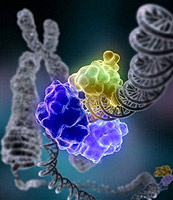 Simple (fighten, pitiriaziforous) ichthyosis - The formation of small (up to 0.5 cm) of gray-sowed scales attached to the skin only in its central part.
Simple (fighten, pitiriaziforous) ichthyosis - The formation of small (up to 0.5 cm) of gray-sowed scales attached to the skin only in its central part.
Sail-shaped ichthyosis - The presence of thick scales of dirty gray color, tightly adjacent to each other like shields (resemble snake skin).
Black ichthyosis Differs in brownish black scales, tightly sitting on the skin.
Brilliant ichthyosis - The transparency of scales and localization of them mainly on the limbs.
X-hooked ichthyosis develops, as a rule, due to
Insufficiency of placental steroid sulphatease. Unlike
ordinary ichthyosis he can exist from birth. Full clinical
the picture is observed only in boys. Scales have larger
Sizes than with ordinary ichthyosis, brownish color. Defeat
More extensive, the process can be involved in the process, neck, neck, rear
feet, bending surfaces of limbs, to a lesser extent back,
Misular part of the head. More intense than when ordinary
ichthyosis amazed belly. Does not affect skin palms and soles. Often observe cloudy
cornea, hypogonadism (underdevelopment of genital organs), cryptorchism (lack of one or both eggs in the scrotum). Various vices may be observed
Development (microcephaly, stenosis of gatekeeper, skeleton anomalies),
mental retardation.
Ichthyosis erythrodermia (Congenital ichthyosis
Erythrodermia Brock). The clinical difference from ordinary ichthyosis is
existence of inflammation from birth.
Erythrodermia ichthyoziforous congenital bullosis (hyperkeratosis
EpiderMolithic) - Education of bubbles and the presence of symptom
Nikolsky (The bundle of the epidermis with the formation of bubbles: the skin becomes
similar to cigarette paper).
Erythrodermia Ichthoziforous Congenital Neboral - Education
large scales, tightly fixed to the leather (especially in
Areas of skin folds), accelerated nail and hair growth, hyperhydrosis
Palms and soles.
Congenital - hereditary ichthyosis arising during the period of intrauterine development and detected by the newborn.
Acquired ichthyosis. Development of dry, peeling skin not
necessarily due to hereditary reasons. This happens
malignant tumors, food disorders, exchange disorders,
Medical therapy. For malignant tumors are noted
Reducing the synthesis of dermal lipids, malabsorption (impaired suction syndrome - characterized by disorder
Suction in the small intestine of one or several nutrients and the occurrence
Violations of exchange processes), immune
Violations. Many food disorders are accompanied by pathological
changes in metabolism vitamin A. Chronic renal
Insufficiency leads to hypervitaminosis A - it causes degradation
and peeling skin. Hypovitaminosis A- The cause of follicular hyperkeratose
And dry skin. Mechanisms for the development of drug ichthyosis are different.
Diagnosis of ichthyosis
Prenatal diagnosis of congenital ichthyosis is carried out at
corresponding family history. Fetal skin biopsy
between the 19th and 21st weeks can reveal the thickening of the horn layer, which is not
Observed normally until the 24th week. This corresponds to the plate
ichthyosis, epidermolytic hyperkeratosis, «The Fruit of Harlequin».
Treating ichthyosis
- Practically with all forms of ichthyosis - vitamin A courses for 2-3 months 2-3 times a year or Tigazon (Etretinat);
- With dry ichthyosis erythrodermia and lamellar ichthyosis -
Etretinat, Isotretinoin 0.5 mg / kg. Retinoides are contraindicated at
pregnancy;
- with bullous form - Cloxacillin or erythromycin;
- Keratolithic means: 6% salicyl ointment, 5-10% ointment with urea.
The course of the acquired ichthyosis is usually facilitated in the treatment
The main disease. Therapy of congenital ichthyosis is complex, especially his
Heavy Forms.

